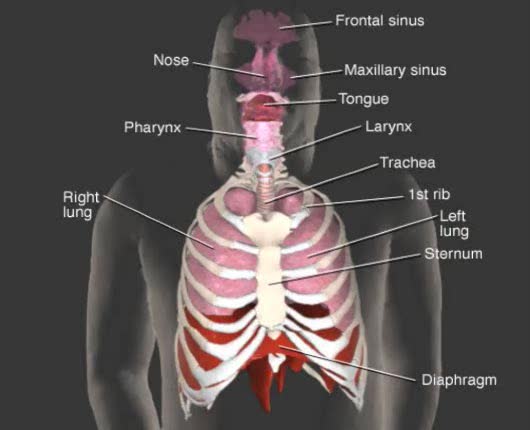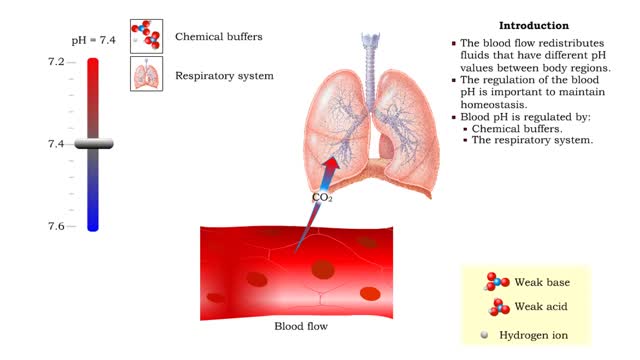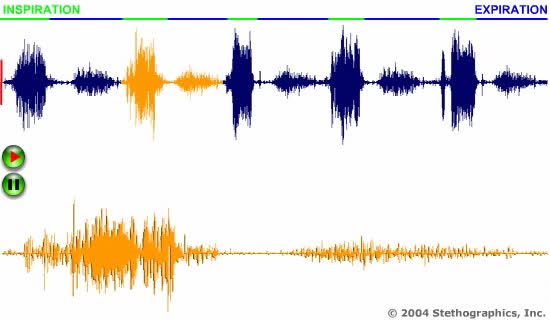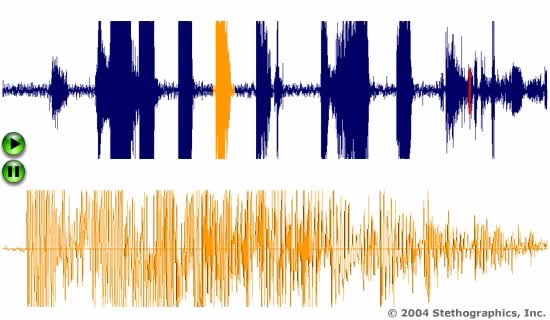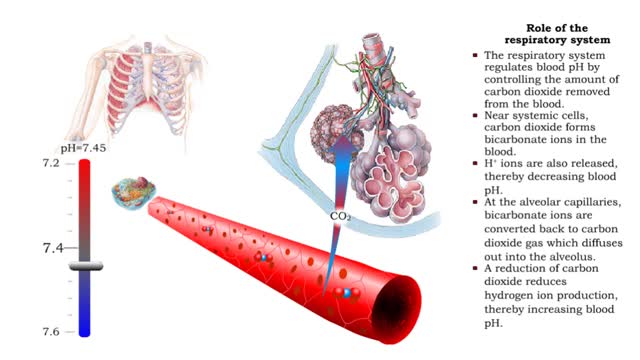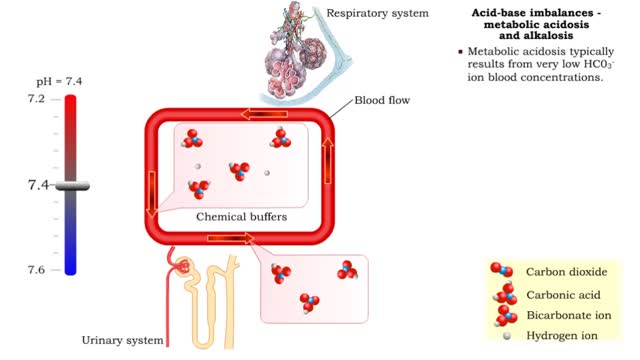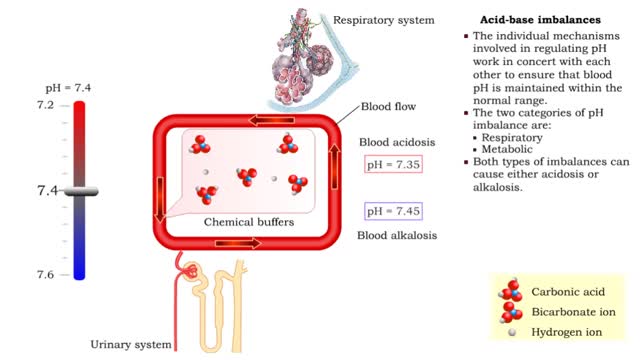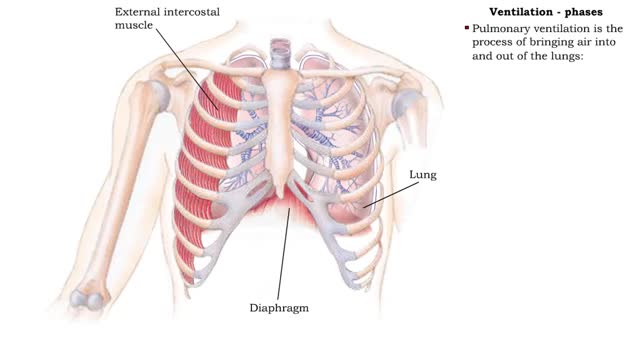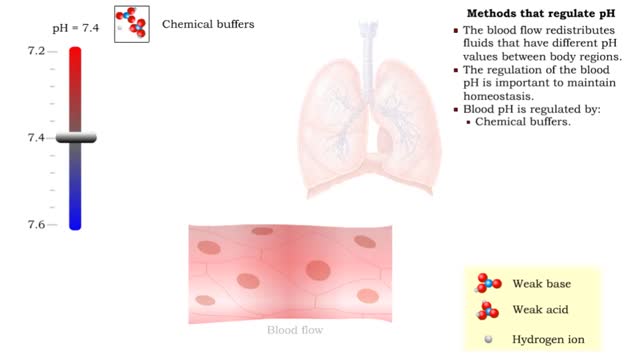Search Results
Results for: 'Respiratory system'
By: Administrator, Views: 488
Respiratory system: nose pharynx larynx trachea bronchi lungs Respiratory system’s primary function: Furnish oxygen (O2) for use by individual tissue cells and take away their gaseous waste product, carbon dioxide (CO2), through act of respiration. External respiration Lungs are vent...
Role of the respiratory system - effect of altered ventilation rates
By: HWC, Views: 11014
• Dissociation of the chemical substances in the body fluids can result in the production of free hydrogen ions. • The pH scale is used to measure the concentration of hydrogen ions in solution. • Normal blood pH values vary around 7.4. • When hydrogen ion concentration increases, t...
Lung Sounds Animation (3 of 5)
By: Administrator, Views: 424
Respiratory rate is regulated by the respiratory center located in the medulla oblongata. Respiratory rates for some different age groups: Newborn 30 – 80/min 1st year 20 – 40/min 5th year 20 – 25/min 15th year 15 – 20/min Adult 12 – 20/min
Lung Sounds Animation (4 of 5)
By: Administrator, Views: 390
Respiratory rate is regulated by the respiratory center located in the medulla oblongata. Respiratory rates for some different age groups: Newborn 30 – 80/min 1st year 20 – 40/min 5th year 20 – 25/min 15th year 15 – 20/min Adult 12 – 20/min
Role of the respiratory system - effect of altered ventilation rates
By: HWC, Views: 11726
• The respiratory system regulates blood pH by controlling the amount of carbon dioxide removed from the blood. • Near systemic cells, carbon dioxide forms bicarbonate ions in the blood. H+ ions are also released, thereby decreasing blood pH. • At the alveolar capillaries, bicarbonate io...
Acid-base imbalances - compensation of respiratory acidosis and alkalosis
By: HWC, Views: 11360
• When one pH balancing system is affected then the other balancing system attempts to correct, or compensate for, the pH imbalance. - Respiratory acidosis: • Excessive CO2 is present so blood pH becomes acidic. • Compensation is increased secretion of H+ into urine and reabsorption ...
Acid-base imbalances - respiratory acidosis and alkalosis
By: HWC, Views: 11465
• The individual mechanisms involved in regulating pH work in concert with each other to ensure that blood pH is maintained within the normal range. • The two categories of pH imbalance are: • Respiratory • Metabolic • Both types of imbalances can cause either acidosis or alka...
Ventilation - phases and driving forces
By: HWC, Views: 11248
Respiration is the exchange of gases between the atmosphere, blood, and cells The combination of 3 processes is required for respiration to occur Ventilation (breathing) External (pulmonary) respiration Internal (tissue) respiration The cardiovascular system assists the respiratory system b...
By: HWC, Views: 11235
• The blood flow redistributes fluids that have different pH values between body regions. • The regulation of the blood pH is important to maintain homeostasis. • Blood pH is regulated by: • Chemical buffers. • The respiratory system. • The urinary system. • All thes...
Advertisement



